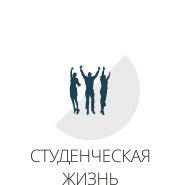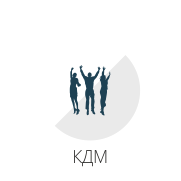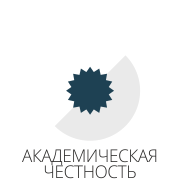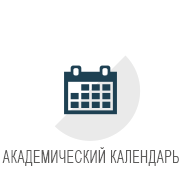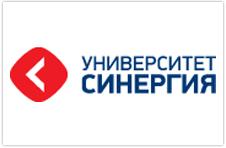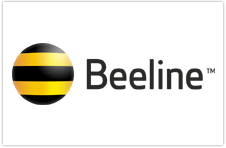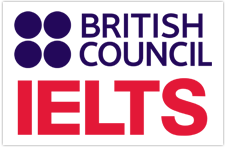Всего лишь час полета из Бангкока в юго-западном направлении - и попадаешь на самый большой остров Таиланда, жемчужину Андаманского побережья - Пхукет. Это место для любителей экзотики и увлекательных путешествий. Здесь есть все для отличного отдыха - великолепные пляжи, чистое лазурное море, высокие горы, коралловые рифы и удивительные джунгли.
Территория острова, в основном, покрыта лесами. На западном побережье несколько песчаных пляжей. Рядом с восточным побережьем расположено множество мелких и средних островков, пляжи которых весьма высокого качества.
На острове можно увидеть множество как природных, так и рукотворных достопримечательностей. Одним из самых популярных мест является национальный парк Khao Phra Thaeo, на котором до наших дней сохранились дикие джунгли в своем первозданном виде.
А теперь задайте себе вопрос: каждый ли шымкентский студент может позволить себе поездку на остров Пхукет? Для студентов университета Мирас ответ очевиден - каждый! Если вы отличник учёбы и активно проявляете себя в жизни университета, то у вас есть отличная возможность побывать в круглогодичном кемпинге, расположенном на сказочном острове. Каждое лето группа студентов Мирас, в состав которой входят и премированные отличники учебы, посещают этот райский остров. Кроме активного развития языковой практики, кемпинг предусматривает отдых с культурно-развлекательной программой.
Uncategorised
Традиции
В университете бурлит настоящая студенческая жизнь: учеба, праздники, походы, спорт, различные клубы по интересам, конкурсы, вечеринки. Студенты университета Мирас являются активными участниками научных конференций, олимпиад и занимают призовые места. Мирас постоянно совершенствует программу своих мероприятий. Традиционным становится проведение церемонии посвящения в студенты в виде грандиозного Open Air и организация флэшмобов. Существуют различные клубы по интересам, где каждый студент может найти себе любимое хобби, будь то театральное искусство, языковые курсы, походы в горы. Студенческая жизнь - самая лучшая и неповторимая пора в жизни человека, это время независимости и самостоятельности. Обучаясь в стенах университета Мирас вы сполна сможете почувствовать это.
Приёмная комиссия магистратуры
Порядок поступления в магистратуру
| Прием документов | 10.07-30.07 |
| Экзамены по ин. языку (англ., франц., немец.) в ЮКГУ им. М. Ауезова* | 10.08 - 25.08 ** |
| Экзамены по специальности | |
| Зачисление в магистратуру | до 25.08 |
| * Для нерезидентов сдача казахского или русского языка (языка обучения); ** Дата будет уточняться в приемной комиссии. |
|
Подробную информацию Вы можете получить по телефонам:
|
|
Документы для поступления:
- Заявление на имя ректора Университета Мирас;
- Нотариально засвидетельствованные копии документов о высшем образовании с приложением;
- Личный листок по учету кадров и нотариально засвидетельствованная копия трудовой книжки (для лиц имеющих трудовой стаж);
- 6 фотографий размером 3х4;
- Медицинская справка формы 086-У;
- Копия удостоверения личности;
- Список научных и научно-методических работ (в случае их наличия).
Перечень документов (магистратура)
- заявление на имя президента Университета Мирас;
- нотариально засвидетельствованные копии документов о высшем образовании с приложением;
- личный листок по учету кадров и нотариально засвидетельствованную копию трудовой книжки (при наличии);
- 6 фотографий размером 3,5 х 4,5;
- медицинская справка формы 086-У;
- копия удостоверения личности;
- список научных и научно-методических работ (при наличии);
- для поступающих на платной основе письмо, гарантирующее заключение договора и оплату расходов за обучение;
- опись документов;
- файловая папка (10 листов).
Специальности магистратуры
Объекты профессиональной деятельности
|
6М060700 «Биология» |
|
|
Профильная подготовка |
Научная и педагогическая подготовка |
|
Производственные, медицинские, фармацевтические, сельскохозяйственные, административные, экспертные, проридоохранительные учреждения; заказники, зоопарки, станции защиты растений, санитарно-эпидемиологические и противочумные станции, селекционные и сортоиспытательные станции, ботанические сады, дендрарии, музеи природы; научно-производственные, проектные и геоботанические учреждения; управления и отделы экологии при районных и областных акиматах; отраслевые лаборатории, подразделения, секции, секторы, департаменты республиканских природоохранных ведомств; |
|
|
Отраслевые институты, предприятия пищевой и перерабатывающейпромышленности, учреждения контрольно-аналитических служб, центры стандартизации и сертификации, школы, колледжи, гимназии |
Вузы, колледжи, гимназии, научно-исследовательские институты и учреждения |
|
6М010300 «Педагогика и психология» |
|
|
Профильная подготовка |
Научная и педагогическая подготовка |
|
Вузы, органы управления образованием, организации образования, организации государственного и негосударственного профиля |
Научно-исследовательские организации образования, органы управления образованием. |
|
6М050700 «Менеджмент» |
|
|
Профильная подготовка |
Научная и педагогическая подготовка |
|
Организации и предприятия всех форм собственности независимо от отрасли и сферы деятельности; органы и инфраструктура государственного и местного управления; |
|
|
|
Средние профессиональные и высшие учебные заведения, научные центры, научно-исследовательские и экспертно-консалтинговые организации, межведомственные, межрегиональные и международные научные и проектные организации. |
|
6М060200 «Информатика» |
|
|
Профильная подготовка |
Научная и педагогическая подготовка |
|
Телекоммуникационные учреждения, органы управления, финансовые организации, страховые компании, промышленные предприятия и другие организации различных форм собственности, использующие математические методы и компьютерные технологии в своей деятельности. |
Научно-исследовательские центры, проектные и научно-производственные организации, органы управления, образовательные учреждения, промышленные предприятия и другие организации различных форм собственности, использующие математические методы и компьютерные технологии в своей деятельности. |
|
6М050900 «Финансы» |
|
|
Профильная подготовка |
Научная и педагогическая подготовка |
|
Органы государственного регулирования финансовой и банковской системы, финансовые институты, бюджетные организации, экономические и финансово-аналитические службы предприятий и организаций различной организационно-правовой формы; |
|
|
|
Вузы, научно-исследовательские, экономические институты. |
О магистратуре
В связи с переходом Республики Казахстан на международные стандарты в системе образования и внедрением программы высшего и послевузовского образования по схеме: Бакалавриат - Магистратура - Докторантура, усиливается потребность в специалистах - магистрах наук.
Магистратура - это ступень послевузовского образования, дающая возможность продолжить профессиональную карьеру в сфере производства или науки. Специалисты - магистры обладают преимуществом при назначении на руководящие должности в сфере производства и бизнеса. Магистратура является необходимой базой для обучения по программе докторантуры.
После успешного окончания программы магистратуры:
• теоретического курса,
• всех видов практик,
• сдачи комплексного государственного экзамена,
• защиты магистерской диссертации
присуждается академическая степень магистра.
Согласно Государственного общеобязательного стандарта образования подготовка магистров по всем специальностям проводится по двум направлениям:
Отдел магистратуры нашего университета укомплектован высококвалифицированными научно-педагогическими кадрами: все теоретические и практические занятия проводят доктора и кандидаты наук, специалисты-производственники. Магистранты имеют возможность углубленного изучения английского языка, который преподается преподавателями - носителями языка.
Образцы тестовых заданий для аппликантов на грант университета «Мирас» 2015г.
1 раздел – проверка понимания содержания текста
1. Read a passage: The shell artist.
At the age of 83 Peter Cooke has become a master of his art - making delicate and unusual objects out of the shells. ‘I shan’t be at all bothered if people don’t buy them,’ he says, as he leads me round his apartment showing his work. He points to a pair of shell-covered ornaments above a fireplace. ‘Because I have got so used to them, and to me they’re adorable. I never meant to sell my work commercially. Some of my friends came to see me about five years ago and said: “You must have an exhibition - people ought to see these. We’ll talk to a man who owns an art gallery”.’ The result was an exhibition in London, at which 70 per cent of the objects were sold. His second exhibition opened at the gallery yesterday. Considering the enormous prices the pieces command – around £2000 for the ornaments – an empty space above the fireplace would seem a small sacrifice for Cooke to make.
When did Cooke first sell his shell –covered object?
- 1. When he was 78.
- 2. At the age of 83.
- 3. When he was 70.
- 4. When his was in London.
- 5. In 2000.
2. Read a passage: The shell artist.
At the age of 83 Peter Cooke has become a master of his art - making delicate and unusual objects out of the shells. ‘I shan’t be at all bothered if people don’t buy them,’ he says, as he leads me round his apartment showing his work. He points to a pair of shell-covered ornaments above a fireplace. ‘Because I have got so used to them, and to me they’re adorable. I never meant to sell my work commercially. Some of my friends came to see me about five years ago and said: “You must have an exhibition- people ought to see these. We’ll talk to a man who owns an art gallery”.’ The result was an exhibition in London, at which 70 per cent of the objects were sold. His second exhibition opened at the gallery yesterday. Considering the enormous prices the pieces command – around £2000 for the ornaments – an empty space above the fireplace would seem a small sacrifice for Cooke to make.
What does an expression ‘a small sacrifice’ refer to?
- 1. The loss of Cooke’s ornaments.
- 2. The display of Cooke’s ornaments.
- 3. The cost of keeping Cooke’s ornaments.
- 4. The space required to store Cooke’s ornaments .
- 5. The price of Cooke’s ornaments.
3. Read an extract from a novel:
A large and healthy man, Chief inspector Douglas Pelham had for the first time in his life been seriously ill with an attack of bronchitis. When he first complained of an aching head and tightness in his chest, his wife, Molly, had tried to persuade him to go to the doctor. Convinced that the police force could not do without him, he had, as usual, ignored her and attempted to carry on working. Predictably, though he wouldn’t have listened to anyone who tried to tell him so, this had the effect of fogging his memory and shortening his temper. It was only when his colleague, Sergeant Lloyd, took the initiative and drove him to the doctor’s door that he finally gave in. By that time, he didn’t have the strength left to argue with her. In no time at all, she was taking him along the chemist’s to get his prescribed antibiotics and then home to his unsurprised wife who sent him straight to bed.
Who does ‘her’ refer to?
- 1. Sergeant Lloyd.
- 2. Molly Pelham.
- 3. The doctor.
- 4. The chemist.
- 5. Douglas Pelham.
4. Read an extract from a novel:
On a Saturday mornings I worked in the family shop to help my dad. But one Saturday Gran called me into her little office behind the shop. I always hated going in there. She had an electric heater on full blast, and the windows were always kept tightly closed whatever the weather. There were piles of dusty catalogues and brochures on the floor. “You’re wanting to get paid, I hear,” Gran said. “Yes, please,” I replied. It was rather like visiting the headmistress at school, so I was very quiet and respectful. Gran searched through the mess of papers on her crowded desk. Eventually she produced an official-looking leaflet and ran her fingers along the columns of figures. “How old are you?” ‘Fifteen … Gran,’ I added for extra politeness, but she looked at me as if I had been cheeky. “Full-timers at your age get forty pounds for a thirty-five-hour week,” announced in such a way as to leave no doubt that she wasn’t in favour of this. “No wonder there’s no profit in shopkeeping! So, Janet, what’s that per hour?” Question like that always flustered me. Instead of trying to work them out in my head, I would just stand there, unable to think straight. “I’ll get a pencil and paper,” I offered. “Don’t bother, snapped Gran angrily, “I’ll do it myself. I’ll give you a pound an hour; take it or leave it. ” ”I’ll take it, please.”
What does ‘fluster’ mean in the paragraph?
- 1. Confused.
- 2. Bored.
- 3. Angered.
- 4. Depressed.
- 5. Encouraged.
5. Read an article about Eric Plumber, a member of a part-time drama club called Globe Players.
I do about one play a year, just out of interest. But I’m quite sort of chap, not one of the world’s extroverts, and yet here I am in an extrovert field, doing theatrical activities. There is sort of magic to the theatre. There’s a sense of togetherness with the rest of the actors in the cast. When a play is over, on the last night, there’s a combination of anticlimax and relief. It’s rather nice to think you will be able to do all the things that you weren’t able to do when the play was on. But there’s also a sense of loss, so you look forward to the next play.
What is Eric’s attitude to his playing skills?
- 1. He thinks that acting is out of character for him.
- 2. He has low motivation for acting.
- 3. He believes that his sociable character contribute to his acting.
- 4. His ability to live in the character helps him a lot in playing.
- 5. He has difficulty finding suitable roles.
6. Read an article about Clare MacDonald, a member of a part-time drama club called Globe Players.
When I was at school, I used to think I’d rather like to go on stage. But then other things came along. One job I did was as a stewardess for an airline. That’s like giving a performance. I left the airline and joined The Globe Players. My husband will always come to performances, but he does tend to moan a bit because he feels it takes up too much time. As a club I feel we are very professional. I do about one play a year, which quite enough for me. Obviously, there are fewer parts as you get older, particularly for women: one can no longer play Julliet or other young parts, which I feel sad about.
What is the challenge for Clare at the theater?
- 1. She has difficulty finding suitable roles.
- 2. She thinks that acting is out of character for her.
- 3. Her family members are happy for her to take part in performances.
- 4. She had some theatre experience before joining The Globe Players.
- 5. She used to play Juliiet at school theatre.
7. Read an article about Robin Wilson, a member of a part-time drama club called Globe Players.
I work behind the scenes with The Globe Players because it’s always a challenge. For instance, the last play I did needed a full-sized, working swimming pool. Well, most amateur theatres have a bucket of water in the wings. But our director said, ‘I want a real swimming pool on that set. Go away and do it.’ It was something different. And quite a lot of amateur societies came to see if they could do it – and a lot of them decided they couldn’t.
Which statement is true to Robin?
- 1. Hementions the publicity they sometimes receive.
- 2. He has a high opinion of The Globe Players.
- 3. He has mixed feelings about finishing a show.
- 4. He enjoys being with people who have different ideas.
- 5. He doubts his ability to perform.
8. Read an article ‘Adventure World – The Jeffree family’, about a theme park in Britain. A family took part in a survey on it and expressed their opinion.
After seven hours we felt there was still a lot to see. The children loved the Big Top Circul, which had a fantastic trapeze act and kept us on the edge of our seats. We went on the Terror Line and, although the girls were rather scared and kept their eyes shut most of the time, they said they’d enjoyed it. Their favourtie ride was Running River, where you think you’re going to get soaked, but you don’t. For younger children, Toy Land is great fun. The children had a look at the new ride, Fear Factor, but we breathed a sigh of relief when they found that they were too small to go on it! The park is so well designed that even queuing fro rides isn’t too boring. It’s spotless clean, and the staff are great. On one ride I couldn’t sit with both girls, so a member of staff offered to go with one of them.
Which statement states for Adventure World?
- 1. We were glad that the children couldn’t go on a certain ride.
- 2. The manner of some employees seemed rather unfriendly.
- 3. The children were all young enough to enjoy it.
- 4. It was good that you could find somewhere to rest.
- 5. There were quite long queues for each ride.
9. Read an extract from an article ‘A Chip off the Old Block’. How much are children influenced in their choice of profession by their parents. Sue Smith shares her experience.
My mother’s a nuclear physicist, which sounds very exciting. The truth is it’s tough profession. For years my mother wasn’t getting paid very well at the institute where she worked. That’s one of the things that discouraged me from going into the same sort of work. And I just don’t think it’s a very interesting job. Of course it sounds very important, but as far as I can see, you spend most of the day at a desk doing hundreds of calculations, and then checking and rechecking them. My mother did try to motivate me to take an interest in science subjects when I was about 14 or 15, and I think she’d be secretly pleased if I wanted to be a scientist, but she’s never put any sort of pressure on me. But I know she also thinks –as I do – that there aren’t so many jobs available in pure research, which is what she does.
Which statement is true to Sue Smith’s experience?
- 1. She feels she has not been influenced in choosing a career.
- 2. Her mother told a lot about her profession.
- 3. She demonstrated great interest in science subjects.
- 4. She comes from a long line of people in this profession.
- 5. She experiences pressure to follow the same profession.
10. Read an extract from an article ‘Environmental Awareness Day’ about the activities organized by Plumpton High School.
This school decided to arrange a variety of activities, some aimed at achieving a better understanding of environmental problems, and others designed to be of practical help. For instance, the school magazine brought out a special edition on the subject, full of articles and stories where pupils expressed their feelings about the threats facing our environment. In another attempt to find out for themselves how serious these threats really are, the pupils decided to study the problem of pollution by making a survey, run by the Science Department, into air pollution in the local shopping centre. On the practical side, the school held a sponsored walk and handed over $750 to the World Wildlife Fund. Pupils prepared a campaign to ban cars from the city centre and reduce traffic congestion. They cycled though the city and handed out brochures about the benefits of cycling and walking. This gained a lot of publicity for the school.
Which statement states for the activities of Plumpton High School?
- 1. It encouraged the use of bicycles.
- 2. It is located in the city centre.
- 3. It decided to protect historical site.
- 4. It started issuing environmental magazine.
- 5. It improved research skills on environmental issues with their students.







